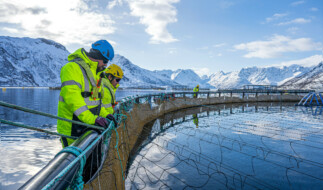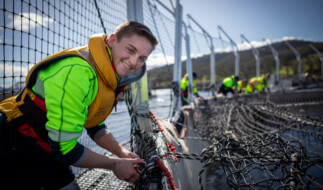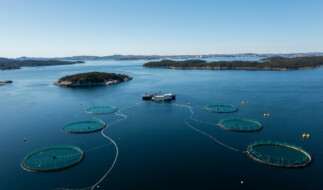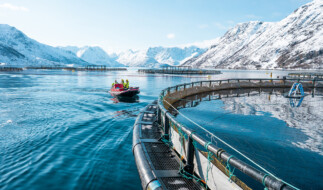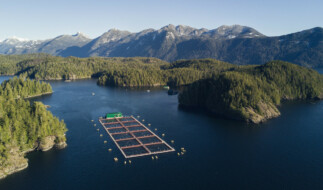GSI 2022 Sustainability Report: A Decade of Data
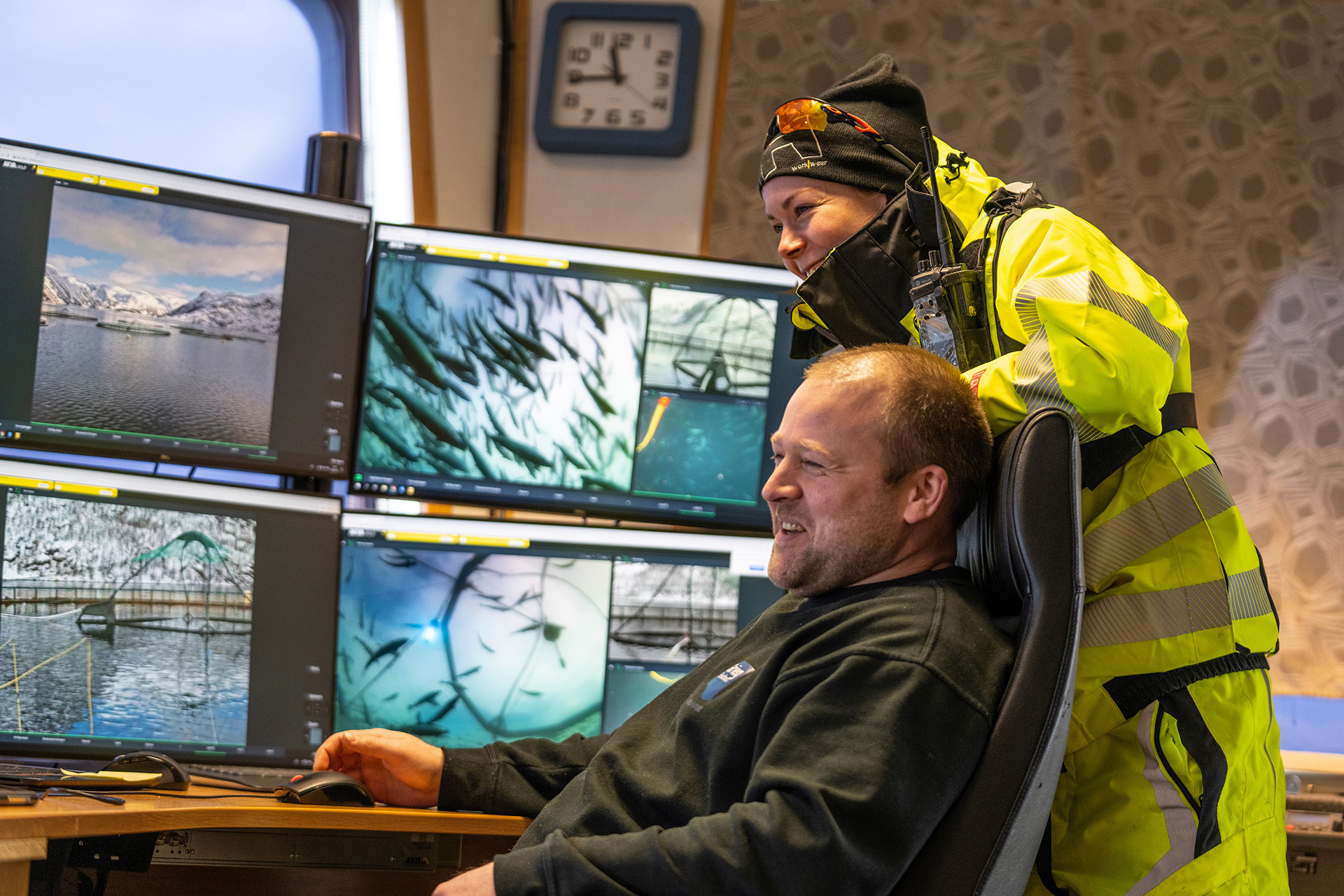
Global Salmon Initiative (GSI) published its 10th annual independently audited Sustainability Report, which documents the environmental and nutritional profile of farmed salmon.
“10 years ago, transparent reporting in the salmon farming industry simply did not exist. GSI aims to be at the forefront of positive change, and though there is a long way to go, being able to provide 10-years’ worth of open access data proves how far we have come. GSI members commit to stringent certifications so that they can be confident in farming sustainably and hope to set a precedent for the remaining 60% of the industry.”Sady Delgado, CEO AquaChile and GSI co-chair.
GSI’s 10th Sustainability Report is now live, providing comprehensive and consistent data across 15 key performance indicators, and containing over 2,000 global data points in environmental and social sustainability across the GSI members. Combining a decade’s worth of data, this one-of-a-kind report provides a unique oversight to industry-wide sustainability performance.
For GSI members, transparency is essential in holding each other accountable against the ambitious sustainability goals we have set as GSI, and in demonstrating measurable, tangible progress as part of our improvement journey for our stakeholders to follow. It’s for this reason we launched the Sustainability Report in 2014, publicly sharing data for each member company that's independently audited. From the report, we are able to determine where to focus our efforts, and initiate knowledge-sharing dialogues grounded in real-time data. For us, the report is not just about demonstrating what we have achieved, it’s about identifying where impact is needed, where we can share our expertise to learn from each other and ultimately, drive meaningful change in improving the sustainability of our operations.
In our 10th report, we are pleased to demonstrate progress in several key areas.
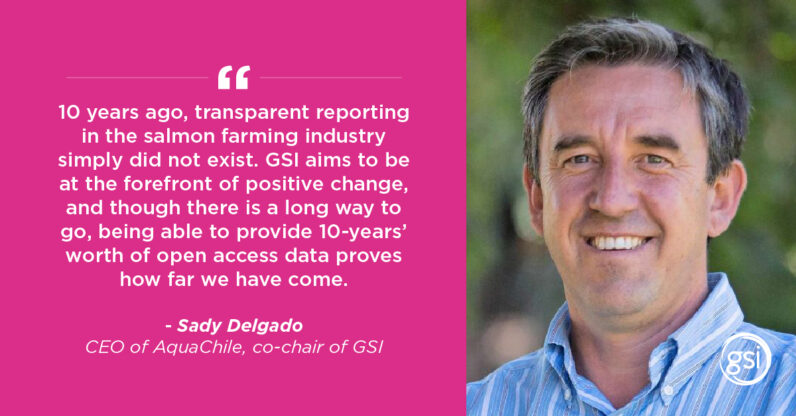
Sustainable Feed
A major component of current feed formulations for farmed salmon comes from wild fish, but as demand grows, we cannot continue using these resources at the same levels. For this reason, GSI members have worked together over the last decade to improve the eco-efficiency of feed via a number of different approaches – increasing the utilization of by-products which would otherwise be wasted, assessing and incorporating alternative non-marine ingredients such as algae, and working to improve the feed conversion ratio, meaning less feed is needed while maintaining nutritional needs of the fish. As a result, GSI members have achieved an average 20% reduction in marine ingredients since 2013.
Fish Health and Welfare
To maintain optimal health and welfare, fish sometimes require medicine, including antibiotics, just the same way humans do when they get sick. However, as GSI we are clear that antibiotics must only be used as prescribed by a veterinarian, and are committed to decreasing the use of antibiotics overall and focusing on more holistic methods of fish health management. Through this collective work, our members have achieved an average 67% decrease in antibiotic use since 2013. As well as reducing antibiotics, GSI members have also been working to reduce medicinal use in response to sea lice, and have demonstrated a 56% reduction in combined average in-bath and in-feed treatments since 2013 in this report, combined with a 71% increase in non-medicinal approaches. As we look to promote optimal fish health and welfare, we continue to share best-practices on holistic health management including the introduction of better technology to assess their welfare.
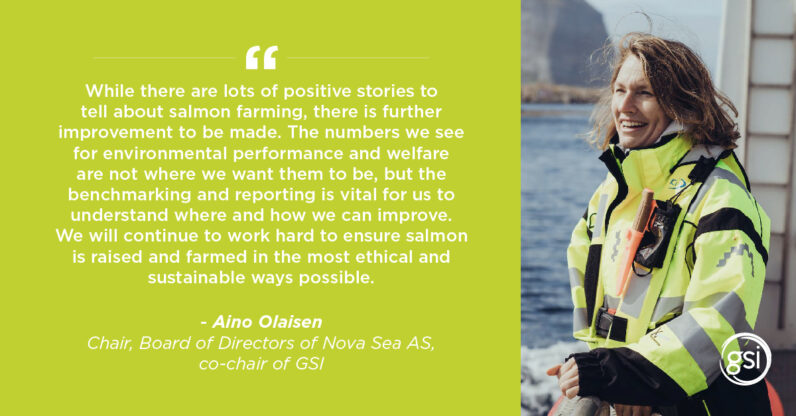
Social Responsibility
Sustainable development is not only environmental progress, but also acting social responsibly. For GSI, this means businesses proactively managing the impacts of their operations and supporting employees, customers, local communities, and individuals within their value and supply chains to ensure we are having a positive contribution to the places where we operate.
Each of our member companies has a number of initiatives on the ground to promote social responsibility. From supporting local health and sporting initiatives, to offering training and internship opportunities, we work hard to ensure that salmon farmers are both an active part of local communities, but even more so, an active contributor. With over 24,000 people now part of the GSI members worldwide, the companies have the ability to reach and support thousands of people. Read some examples of how they do this in the community engagement pages in the report.
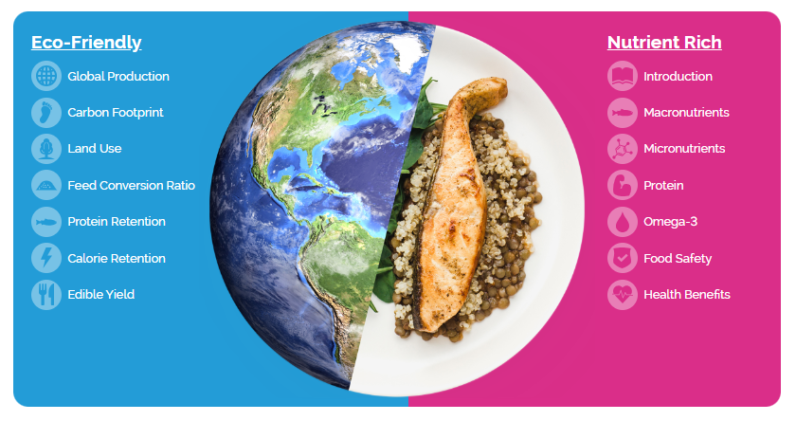
More Work to be Done
While the report highlights some significant progress in key areas over the last 10 years, there is always more to be done. As GSI members, we continue to use the report as a guidance document on where we can focus our collective efforts to drive further improvements. Fish health and welfare, and minimizing our environmental footprint continues to be our top priority, and from here we go back into our specialized task forces to assess where further innovations are needed. Our aim is to demonstrate continued progress in every report we deliver.
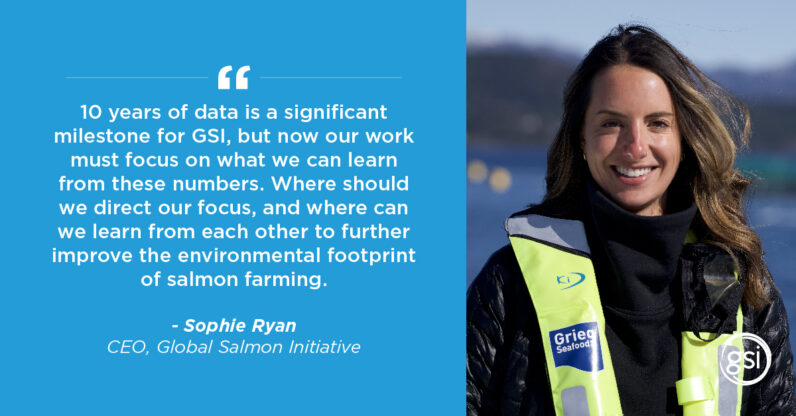
Our 2022 Sustainability Report serves as a powerful tool for the farmed salmon industry as a framework for measurement, and outlining milestones for the future. GSI has ambitious sustainability targets, and we’re confident we can achieve them through the transparency, accountability and collaboration.
Visit the Data Deep Dive page to follow our journey, and follow us on LinkedIn, Twitter and Instagram for news and updates throughout the year.
